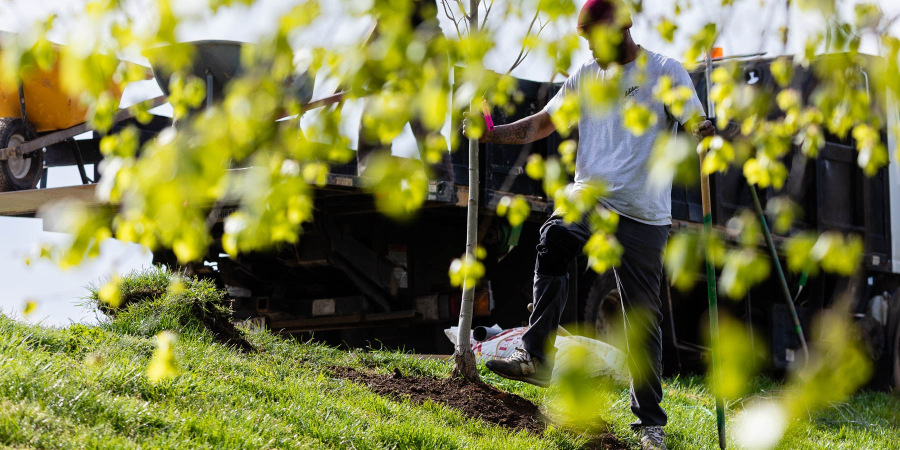Grants & RFPs
The Bay Program and its partners offer multiple grant opportunities to help fund restoration projects of all sizes across the Chesapeake watershed.

Open Requests for Proposals
Innovative Nutrient and Sediment Reduction Grants
The National Fish and Wildlife Foundation (NFWF),The National Fish and Wildlife Foundation (NFWF), in partnership with the U.S. Environmental Protection Agency (EPA) and the federal-state Chesapeake Bay Program (CBP) partnership, is soliciting pre-proposals through the Innovative Nutrient and Sediment Reduction (INSR) Grants program to improve water quality and reduce nutrient and sediment pollution to the Chesapeake Bay and its tributary rivers and streams. Major funding for the INSR Grants program is provided by EPA, with other important contributions from Altria Group, the U.S. Department of Agriculture Natural Resources Conservation Service (NRCS), and the U.S. Forest Service.
Closing Date: May 31, 2026
View RFPChesapeake Watershed Investments for Landscape Defense (WILD) Grants 2026 Request for Proposals
The National Fish and Wildlife Foundation (NFWF), in partnership with the U.S. Fish and Wildlife Service (FWS), is soliciting proposals through the Chesapeake Bay Stewardship Fund (CBSF) to advance voluntary actions to restore, conserve, and connect fish and wildlife habitat of the Chesapeake Bay and its tributary rivers and streams. NFWF will award funding through three distinct funding opportunities:
1. WILD Implementation grants of $75,000 to $500,000 will be awarded for projects that result in direct and measurable on-the-ground actions to restore, conserve, and connect fish and wildlife habitats.
2. WILD Collaborative Conservation grants of up to $200,000 will be awarded for projects that support and enhance the capacity of partnerships, networks, and other collaborative models working collaboratively to advance place-based, landscape-scale, and cross-jurisdictional habitat restoration, conservation, and connectivity outcomes.
3. WILD Planning and Technical Assistance (PTA) grants of up to $75,000 will be awarded for projects that help advance future on-the-ground actions to restore, conserve, and connect fish and wildlife habitats and related conservation benefits in the Bay watershed through community-based assessment, planning, design, and other technical assistance-oriented activities.
NFWF will host an applicant webinar detailing this Request for Proposals at 1:00PM on Tuesday, January 27, 2026. Interested applicants must register in order to participate. A recording of the webinar will be made available on the program page by Thursday, January 29, 2026.
Closing Date: April 9, 2026
View RFPAdditional Opportunities
- The Chesapeake Bay Stewardship Fund is a partnership between the Bay Program and the National Fish and Wildlife Foundation to strategically invest in conservation actions to restore the Bay. Grant opportunities include Innovative Nutrient and Sediment Reduction grants and Small Watershed grants.
- National Oceanic and Atmospheric Administration (NOAA) Bay Watershed Education and Training grants support Chesapeake watershed environmental education programs and professional development for teachers on Bay-related environmental topics. NOAA also provides funding to restore habitat for coastal and anadromous fisheries.
- The Chesapeake Bay Trust offers individual grant programs to support Chesapeake restoration and protection activities in Maryland.
- The U.S. Environmental Protection Agency provides a variety of grant programs and funding opportunities, as well as regional grants.
